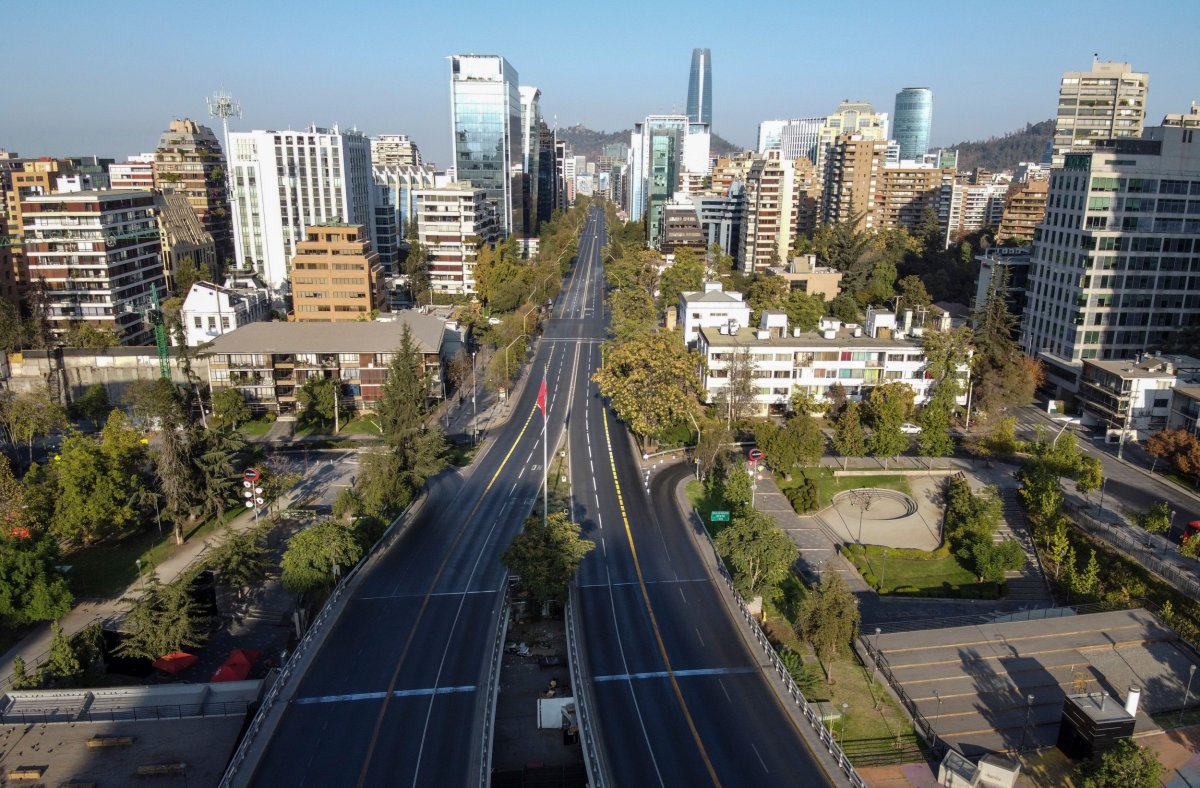Chile's health minister has dismissed calls for the country to impose a national lockdown to help combat the spread of the coronavirus as it could yet mutate into a "better person."
Speaking to Canal 24 Horas on Friday, Jaime Manalich said Chilean President Sebastian Pinera should not bow to pressure to order Chile's residents go into quarantine like neighboring Argentina, which has fewer confirmed cases of the virus.
A total of 56 mayors from central Chile wrote an open letter to Pinera asking him to place the country on lockdown on Friday, reported Reuters.
The number of confirmed cases in the South American country currently stands at 632 with one fatality, reports Johns Hopkins University.
Last week Pinera did declare a 90-day "state of catastrophe" in Chile, which will allow the government to restrict freedom of movement in the country and control food supply in the country.
Chile has already closed its schools and borders and banned mass gatherings in a bid to control the spread of the coronavirus.
"According to our calculations, we are doubling the number of cases every three days," Manalich said.
"The daily calculus is that we're doubling the number of cases every four days, even slower. Tomorrow, maybe it's every two days, three days.
"This whole thing has a variability because we're talking about a particle that you can only see under a microscope and we can't predict its behavior.
"What happens if this virus mutates into a more benign form? And the only thing it produces is a common cold?
"What happens if the virus mutates and becomes, pardon this word, a better person? That's a different ballgame."
Following the interview, Chile announced a nationwide night-time curfew be put in place from between 10 p.m. to 5 a.m. from Sunday in a bid to stop people gathering on the streets. The government closed the country's cinemas, restaurants, bars and clubs on Friday.
Manalich also announced plans to isolate several areas of Chile where the virus is yet to appear, or with very few cases, such as the island of Chile and Puerto Williams in Patagonia.

President Pinera previously declared a state of emergency in the capital of Santiago in October 2019 amid widespread protests and unrest following rises in the cost of living in the country, which severely affected his popularity among residents.
Health experts are now also criticizing Pinera for his lack of leadership and slow response to the COVID-19 outbreak in the country.
"Measures have been lacking and the president is not engaging in dialogue," said Izkia Siches, head of the National College of Surgeons.
There are more than 310,000 confirmed cases of COVID-19 across the world, with 14,765 deaths, according to Johns Hopkins University. A total of 98,869 people have recovered from the virus.
World Health Organization advice for avoiding spread of coronavirus disease (COVID-19)
Hygiene advice:
- Clean hands frequently with soap and water, or alcohol-based hand rub.
- Wash hands after coughing or sneezing; when caring for the sick; before; during and after food preparation; before eating; after using the toilet; when hands are visibly dirty; and after handling animals or waste.
- Maintain at least 1 meter (3 feet) distance from anyone who is coughing or sneezing.
- Avoid touching your hands, nose and mouth. Do not spit in public.
- Cover your mouth and nose with a tissue or bent elbow when coughing or sneezing. Discard the tissue immediately and clean your hands.
Medical advice
- If you feel unwell (fever, cough, difficulty breathing) seek medical care early and call local health authorities in advance.
- Stay up to date on COVID-19 developments issued by health authorities and follow their guidance.
Mask usage
- Healthy individuals only need to wear a mask if taking care of a sick person.
- Wear a mask if you are coughing or sneezing.
- Masks are effective when used in combination with frequent hand cleaning.
- Do not touch the mask while wearing it. Clean hands if you touch the mask.
- Learn how to properly put on, remove and dispose of masks. Clean hands after disposing of mask.
- Do not reuse single-use masks.
Uncommon Knowledge
Newsweek is committed to challenging conventional wisdom and finding connections in the search for common ground.
Newsweek is committed to challenging conventional wisdom and finding connections in the search for common ground.
About the writer
Ewan Palmer is a Newsweek News Reporter based in London, U.K. His focus is reporting on US politics, domestic policy ... Read more
To read how Newsweek uses AI as a newsroom tool, Click here.








